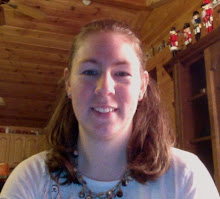Yes, I could leave magic more free form. It was going to be like that, not really taking center stage. But magic and the societal laws regarding it both make a big difference in what happened in the past to the wizard, what happened to the girl, and what will happen in the future to both of them and the society they live in. The wizard will have to use magic, and magic will get used against them. Which means now I really have to define it.
However, creating magic systems is like social studies in general: my weak area. In one of my other novels-in-progress, my husband created the magic system, so I just have to fit the powers and abilities into his framework. (It's a joint project.) Magic is tangled with the social structure in this world, so it's particularly tricky. Studying a couple of the other well developed magic systems (D&D and Darksword) has given me some ideas for how to shape it, but neither quite works for how I want magic to function in my world setting.
This morning I just typed "magic systems" into the search line on Google and found this great article from Brandon Sanderson. I've never read any of his books, though I think Mistborn is on my TBR list. This article mentions his first experience on a panel at Worldcon on the topic of "How does the magic work?" His first thought was "it has to have rules." But everyone else on the panel adamantly disagreed, stating that with rules comes a loss of wonder. Well, in trying to defend his stance, and in reflecting later on the alternative position, he came up with this law:
An author's ability to solve conflict with magic is directly proportional to how well the reader understands said magic.
One of the corollaries: Magic doesn't need strict rules, but it can't undermine the plot.
He expands on how to apply this rule on the continuum of soft magic to hard magic, just like in SF there is the continuum of soft science to hard science. He uses Spiderman, Gandalf, and Harry Potter as specific examples but also mentions several authors who have approached magic in ways differently from himself, yet he still enjoys reading their stories.
In some aspects, my trogg and wizard story is leaning toward the hard end even though not a great deal of magic will be used on center stage. But when it is used, I want readers to understand what is going on and the risks involved. The wizard won't be telling the trogg about how magic works directly, but he will be explaining the social laws and a bit on how they are trained, so indirectly, some of the rules on how magic works will be hinted at including types that may show up later in the story.
Though the article doesn't exactly help me create the system itself, it does explain why I need to hash out how things work in this world right now, frustrating as it is for me. And I really like his approach toward writers who use magic differently from his own style. Though I'm more of a definer even when I'm winging it, I have enjoyed books that fall more toward the soft end.
How about your writing? Do your stories fall toward soft magic, middle ground, or hard magic? Or if you write SF, what is your the SF equivalent?







